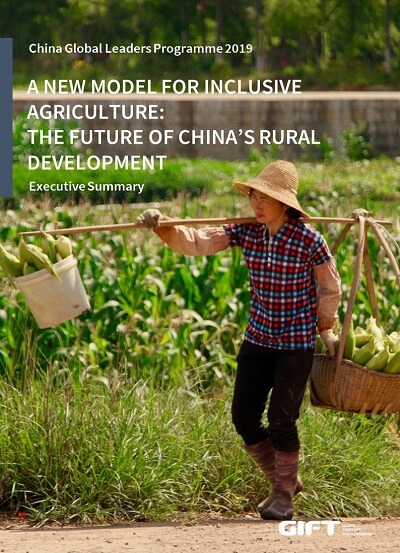The core problem is the economic and social vulnerability of smallholder farmers in Laixi, China, caused by extreme land fragmentation and their inability to organise effectively.
Despite previous reforms, these farmers remain disconnected from modern value chains and lack the scale to negotiate fair prices or access essential services, leaving them at the mercy of profit-driven middlemen. This is compounded by a severe demographic crisis, as young people migrate to cities for work, leaving behind an ageing population to manage the land without the necessary skills, labor, or support systems.
The proposed solution entails creating a new, scalable business model to organise farmers and provide them with collective bargaining power and modern services. The key components are:
- Establishing a collective enterprise
Forming the Township Agricultural Collective Enterprise (TACE), which farmers join as member-owners through an initial investment, giving them voting rights and a share of the profits. - Creating a service hub
Operating a Service Centre for Smart Villages (SCSV) that acts as a central platform to provide efficient, cost-effective services to farmers by leveraging economies of scale. - Organising into producer groups
Structuring farmers into Farming Group Communities (FGCs) based on crop type and geography to achieve operational scale. - Providing key services
The SCSV generates revenue and benefits farmers through five core streams:- Group purchase of agri-inputs: Bulk buying of seeds/fertiliser to lower costs.
- Post-harvest handling: Offering sorting, packaging, branding, and traceability to increase the value of produce.
- Farming-as-a-service: Providing access to mechanised equipment and technical expertise for a fee.
- Labour management: Brokering and matching labor needs with a database of available workers.
- Financial services: Facilitating access to wholesale credit and crop insurance.
- Implementing a digital platform
Using a digital application to support all services, facilitate data sharing, enable traceability, and provide market information for better price negotiation. - Funding community services
Allocating 30% of the SCSV’s profits (or a minimum of RMB 600,000) to fund community initiatives focused on healthcare, education, elderly care, and scholarships to incentivise youth to return to the villages. - Shared ownership model
TACE is structured with 60% ownership by the farmers and 40% by external investors (e.g., institutional funds, agri-service companies), aligning incentives for all parties.


